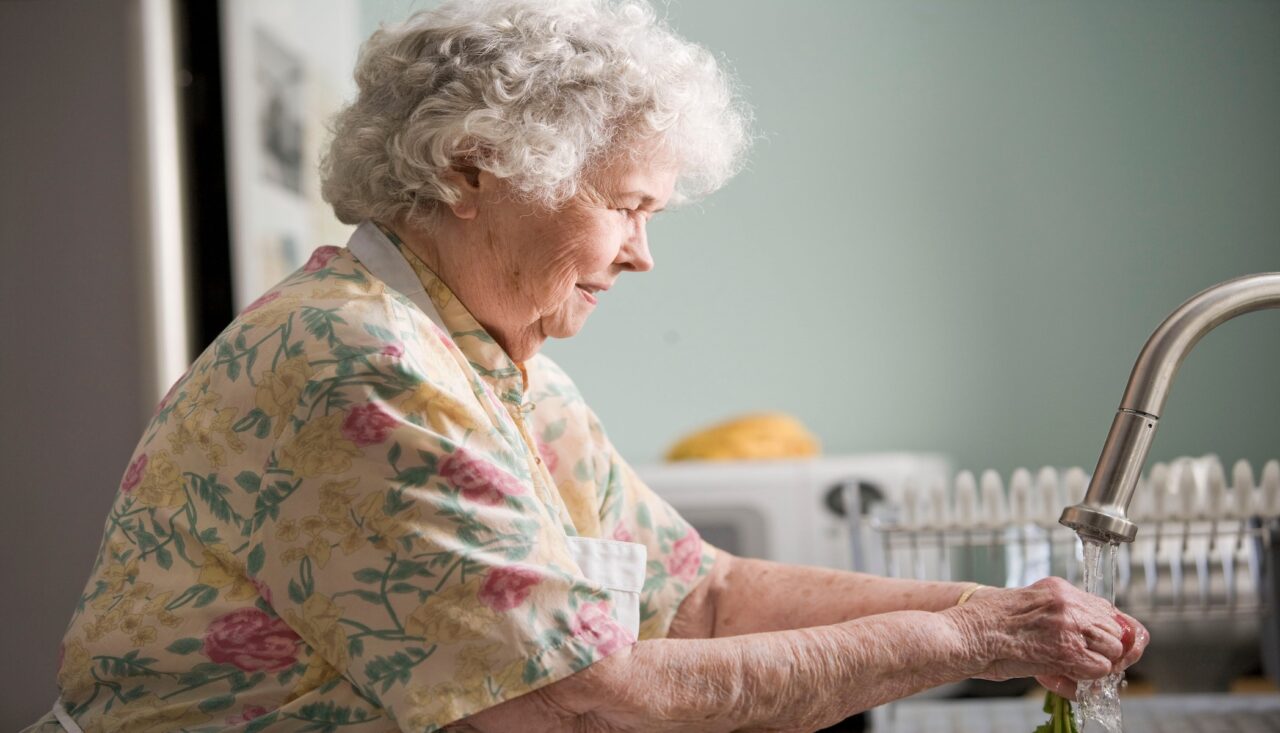If you are considering in-home care service for a loved one who is living with Alzheimer’s you are taking the right decision.
As Alzheimer’s disease progresses, individuals experience cognitive decline and struggle with daily tasks. Usually, most people explore the options of old people’s homes or taking their loved ones in and out of the hospital for care.
This though beneficial has a lot of effects, stress, and discomfort for the Alzheimer’s patient. However, with the introduction of in-home care, these have been mitigated.
In-home care allows individuals to remain in their own homes, surrounded by cherished belongings and memories. It is a compassionate and effective solution for providing support, comfort, and dignity to those living with Alzheimer’s.
This article explores the benefits of in-home care for individuals with Alzheimer’s disease and their families, highlighting its role in enhancing the quality of life for those affected.
Why is In-Home Care Important For People With Alzheimer’s?
Alzheimer’s disease is a neurodegenerative disorder that primarily affects the elderly population. According to the World Health Organization, Alzheimer’s is the most common cause of dementia, accounting for about 60-70% of all cases.
While Alzheimer’s disease is more prevalent in older individuals, it is not exclusive to them. According to the National Library of Medicine, early-onset Alzheimer’s can occur in individuals younger than 65, although it is relatively rare. Late-onset Alzheimer’s, which typically develops after the age of 65, is more common.
Once this disease sets in, it impairs cognitive function, including memory, thinking, and behavior. Caring for the affected individual is very important.
In-home care is an important care strategy to take because of the following reasons:
#1. Maintains Familiarity and Comfort
One of the main benefits of in-home care for individuals with Alzheimer’s is the ability to remain in a familiar environment.
Alzheimer’s often causes disorientation, agitation, anxiety, and confusion in the affected individual. A sudden change in living arrangements can exacerbate these symptoms.
Therefore receiving care in the comfort of their own homes, and being surrounded by individuals they know can maintain a sense of familiarity. This helps to reduce anxiety and stress associated with the disease and also makes them feel secure and safe.
#2. Form Of Personalized and Individualized Care
Each person’s journey with Alzheimer’s is unique as such all require some level of personalized care. With in-home care, a personalized and individualized approach to Alzheimer’s care can be taken.
In-home care allows for tailored solutions that address the specific needs and preferences of the patient. This gives caregivers or home care agents the opportunity to work closely with individuals and their families to develop customized care plans.
This personalized approach promotes engagement and autonomy, which are vital for maintaining a sense of identity and well-being.
#3. Enhanced Safety and Security
One of the advantages of in-home care for people with Alzheimer’s is that in-home care provides a sense of security and safety.
Safety is a critical concern for individuals with Alzheimer’s. They can easily wander or forget essential tasks such as taking prescriptions or turning off appliances.
With in-home caregivers around, they play a pivotal role in ensuring the safety and security of individuals with Alzheimer’s. They keep an eye on their environment and movement and help implement safety measures, significantly reducing the risk of accidents or injuries.
#4. Provides Support with Daily Activities
Taking care of one with Alzheimer’s at home is a great choice as the caregiver helps them with their daily activities.
As Alzheimer’s sets in, it can be a tedious task for the affected individual to perform their daily activities effortlessly. In-home caregivers offer invaluable assistance with tasks such as bathing, dressing, grooming, and meal preparation.
These caregivers are trained to take care of elderly Alzheimer patients based on their needs and abilities, fostering a sense of independence and accomplishment.
By receiving support with daily activities, individuals with Alzheimer’s can maintain a higher level of functioning and quality of life.
#5. Emotional and Social Well-being
People living with Alzheimer’s often isolate themselves. If they are doing that, it’s one of the Signs Your Loved One May Need Help.
With in-home care, their caregivers provide emotional support, companionship, and social interaction, which are crucial for mental well-being.
They engage individuals in stimulating conversations, memory-enhancing activities, hobbies that promote cognitive function, and Cognitive Activities for the Elderly.
By maintaining social connections and emotional engagement, individuals with Alzheimer’s can experience improved mood, reduced agitation, and a greater sense of purpose.
#6. Continuity of Routine
Alzheimer’s patients thrive on routine and familiarity. Changes in their environment or daily routines can be disruptive and disorienting.
One of the advantages of in-home care for people living with Alzheimer’s is that it helps keep them in the continuity of routine.
In-home caregivers maintain consistency by adhering to established routines and schedules, providing a stable and predictable environment that helps reduce anxiety and confusion.
#7. Medication Management
Alzheimer’s patients often require multiple medications. Personally, they cannot keep track of their medication schedules and the potential side effects can be challenging.
In-home caregivers can help manage medication regimens. This ensures that medications are taken as prescribed and address any concerns or side effects.
This support helps optimize the effectiveness of treatment and minimizes the risk of medication errors.
In-home care provides a comprehensive and compassionate approach to Alzheimer’s care, addressing the unique needs of individuals and supporting their overall well-being. It allows individuals to age in place while receiving the necessary assistance, supervision, and emotional support to maintain a good quality of life despite the challenges posed by Alzheimer’s disease.
Conclusion
In-home care offers a compassionate and effective solution for individuals with Alzheimer’s disease. By providing personalized and individualized care, maintaining familiarity, enhancing safety, supporting daily activities, and promoting emotional well-being, in-home caregivers empower individuals with Alzheimer’s to live their lives with dignity and comfort.
Families also benefit from the peace of mind of knowing their loved ones are receiving professional care in a familiar setting. In-home care is a valuable resource that significantly contributes to the overall quality of life for those affected by Alzheimer’s disease.
If you have a loved one living with Alzheimer’s, you should look out for a good home care facility with professional caregivers to help you care for them.
If you are in Indiana and looking for a home care agency with a personalized client care plan for people living with Alzheimer’s and also asking how to access quality care services, visit Good Hands home care agency, where care is offered with professionalism and efficiency.





